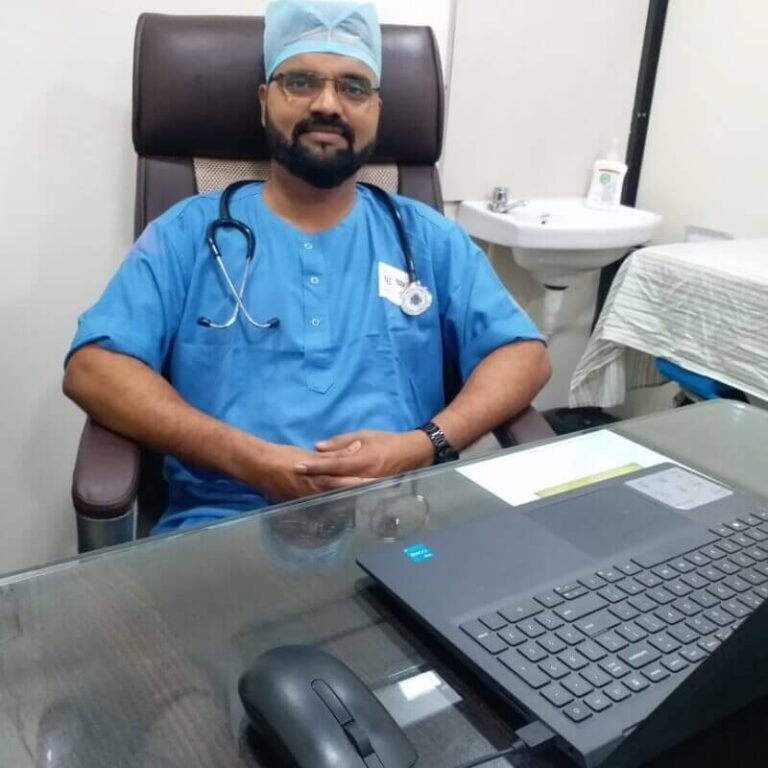Department of
General Surgery
Minimally Invasive. Maximized Recovery
Meet Our Team : Department of General Surgery
Overview
Unity Hospital’s General Surgery Department is your trusted partner for surgical care. Our skilled and compassionate general surgeons offer a wide range of surgical services to diagnose and treat a variety of conditions. Whether you require a minimally invasive procedure like laparoscopic appendectomy or a complex surgery like colectomy for colon cancer, we are here for you.
We utilize the latest advancements in surgical techniques, prioritizing patient safety and comfort. Our surgeons are highly skilled in both traditional open surgery and advanced minimally invasive techniques like laparoscopy and robotics.

General Surgery
- Scope of General Surgery: General surgeons diagnose and treat a broad spectrum of conditions affecting the abdomen, digestive system, endocrine system, and soft tissues. They may also perform biopsies and manage surgical aspects of trauma care.
- Preparation for General Surgery: Before surgery, you will undergo a thorough evaluation to ensure your safety and optimize outcomes. This may involve blood tests, imaging scans, and consultations with other specialists. Our team will provide clear instructions on pre-operative preparation, including fasting and medication guidelines.
- General Surgery Procedures: General surgeons perform a wide range of procedures, both minimally invasive and open. Some common procedures include:
- Laparoscopic appendectomy
- Laparoscopic cholecystectomy (gallbladder removal)
- Hernia repair (inguinal, hiatal, etc.)
- Colon and rectal surgery (colectomy, hemorrhoidectomy)
- Thyroid surgery
- Breast surgery (lumpectomy, mastectomy, reconstruction)
- Soft tissue surgery (lipoma removal, skin cancer excision)
- Trauma surgery (for injuries to organs and tissues)
- Types of General Surgery Procedures: Our surgeons are skilled in various surgical approaches, including:
- Laparoscopic surgery: Minimally invasive surgery using small incisions and specialized instruments.
- Robotic surgery: Utilizing robotic technology for enhanced precision and control during complex procedures.
- Open surgery: Traditional surgical techniques when minimally invasive approaches are not suitable.
- Surgical oncology: Surgical intervention for the treatment of cancerous tumors.
- Advanced surgical techniques: We stay at the forefront of surgical advancements, offering innovative techniques for faster recovery and improved outcomes.
Surgical Solutions for a Wide Range of Conditions
Abdominal Surgeries
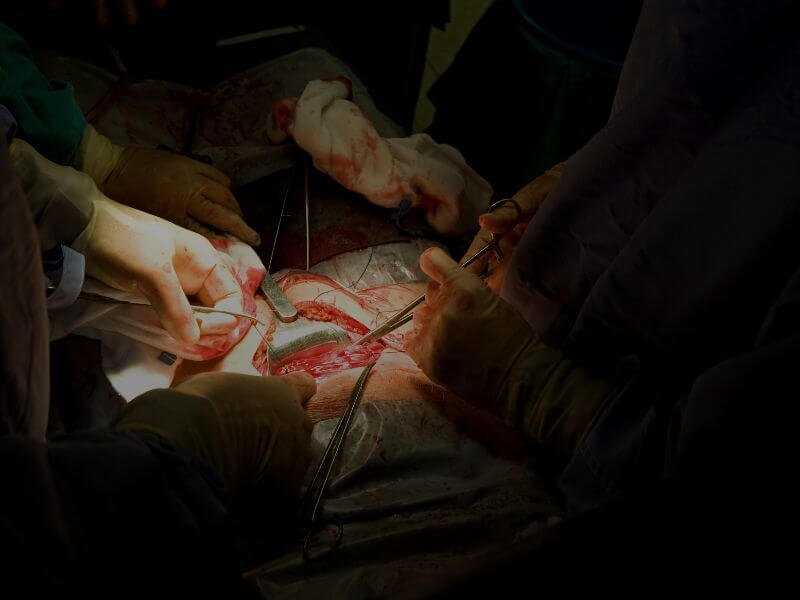
- Appendectomy
- Cholecystectomy (Gallbladder removal)
- Hernia repair (Inguinal, Umbilical, Incisional)
- Colectomy (Colon resection)
- Splenectomy (Spleen removal)
- Gastrectomy (Stomach removal)
- Pancreatectomy (Pancreas removal)
- Liver resection
- Bariatric surgery (Weight loss surgery)
Breast Surgeries

- Lumpectomy
- Mastectomy (Simple, Radical, Modified Radical)
- Breast Reconstruction
- Breast Augmentation
- Breast Reduction
Endocrine Surgeries
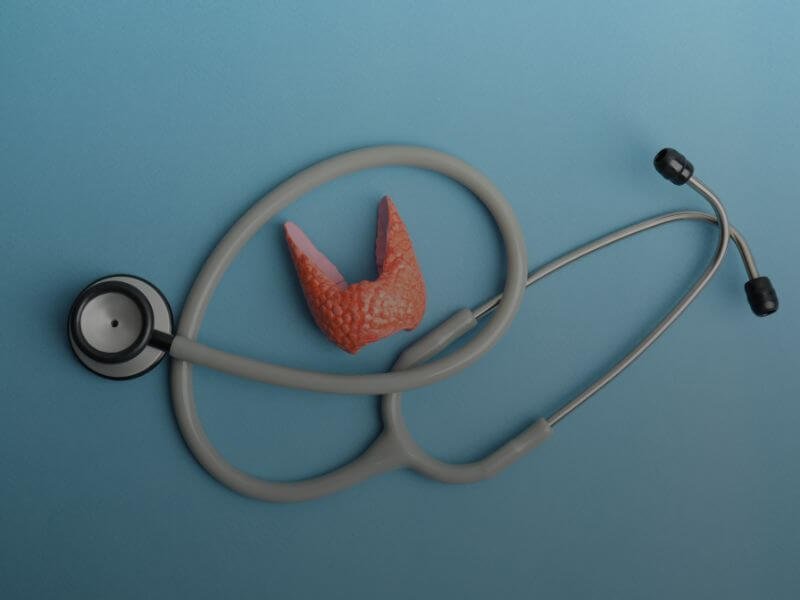
- Thyroidectomy (Partial, Total)
- Parathyroidectomy
- Adrenalectomy (Adrenal gland removal)
- Thyroid surgery
- Advanced thyroid cancer surgery
Vascular Surgeries
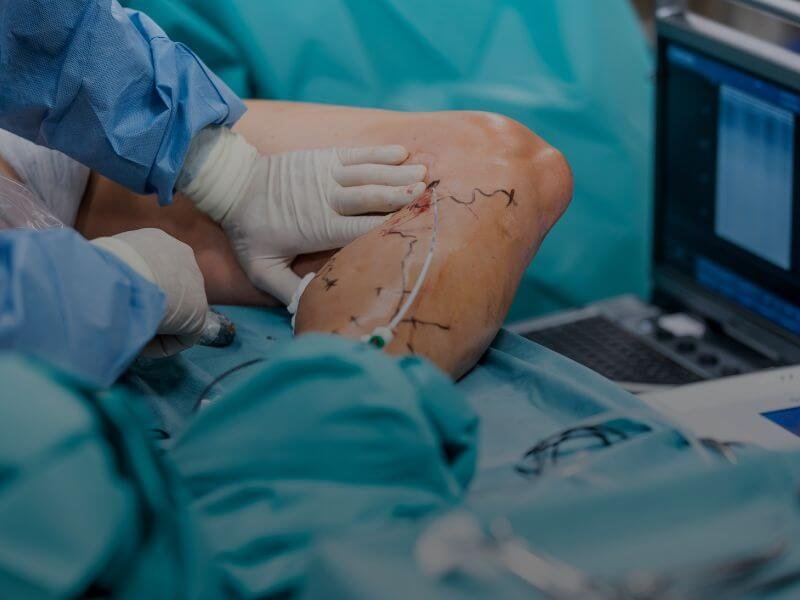
- Varicose vein surgery
- Aortic aneurysm repair
- Carotid endarterectomy
- Peripheral artery bypass surgery
Soft Tissue Surgeries
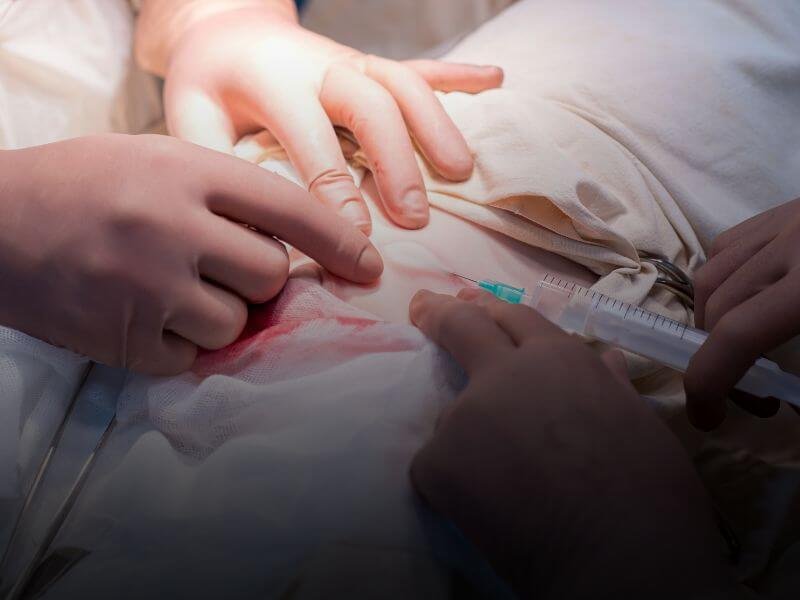
- Excision of soft tissue masses or tumours
- Skin lesion removal
- Debridement of wounds
Trauma Surgeries
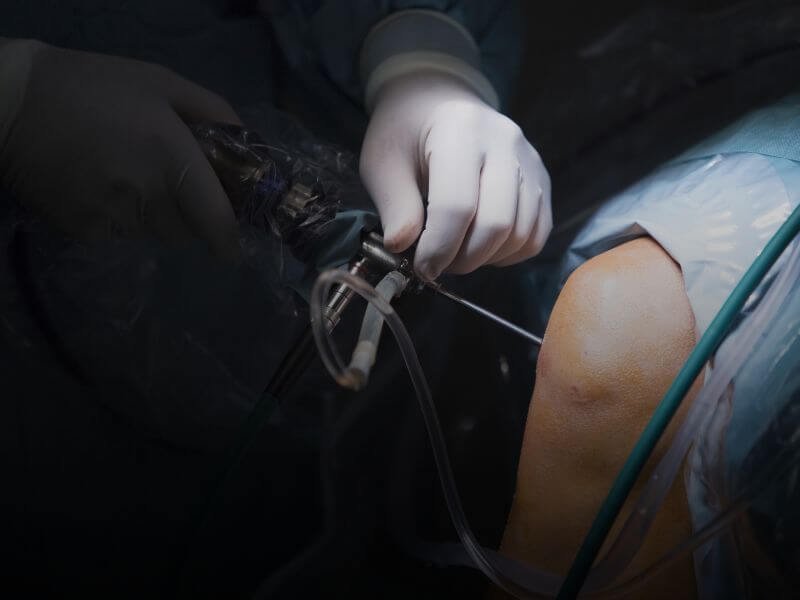
- Emergency surgeries for injuries such as fractures, wounds, and internal injuries
- Trauma laparotomy
Colorectal Surgeries

- Hemorrhoidectomy
- Fistulotomy
- Bowel resection and anastomosis
- Colostomy
Minimally Invasive Surgeries
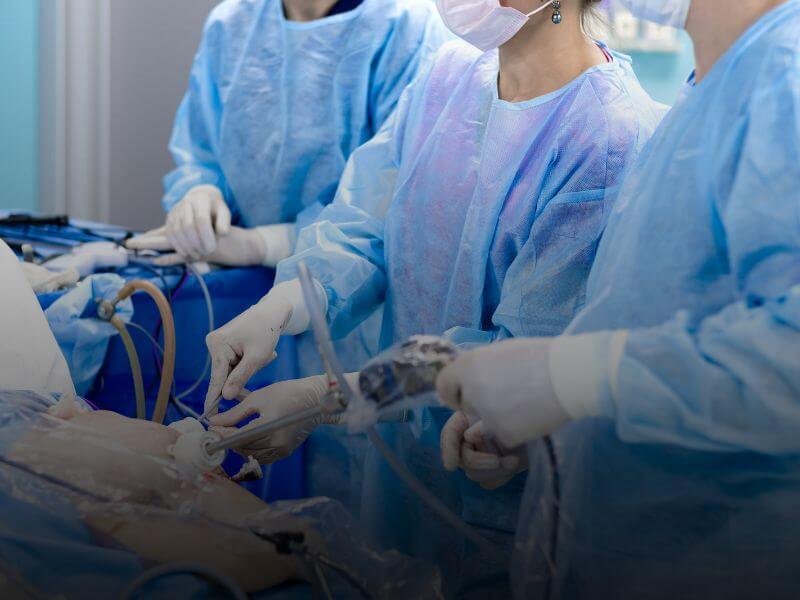
- Laparoscopic Appendectomy
- Laparoscopic Cholecystectomy
- Laparoscopic Hernia Repair
- Laparoscopic Colectomy
- Laparoscopic Splenectomy
- Laparoscopic Bariatric Surgery
Robotic Surgeries
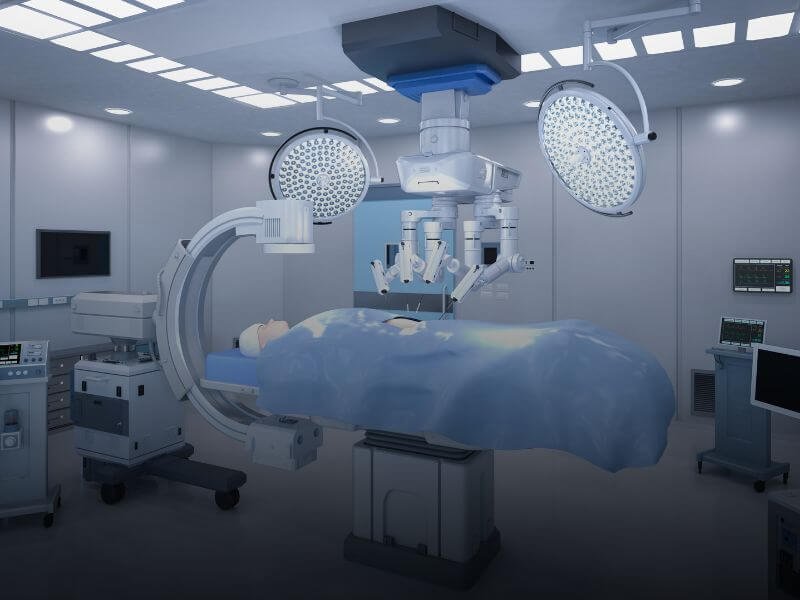
Robotic-assisted laparoscopic surgeries for various procedures
Pediatric Surgeries

- Pediatric appendectomy, hernia repair, and other age-appropriate procedures
Geriatric Surgeries

- Surgeries tailored for elderly patients, considering their specific health needs
Others
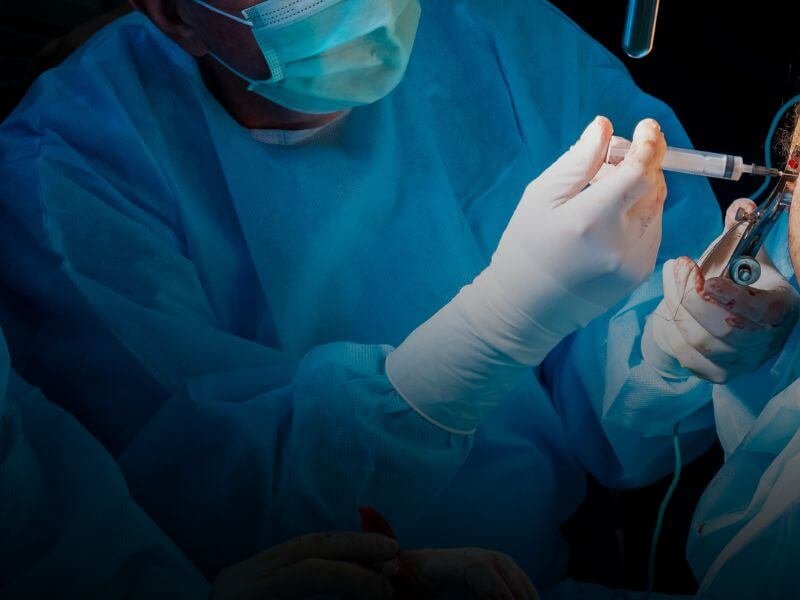
- Cystectomy (Bladder removal)
- Nephrectomy (Kidney removal)
- Prostatectomy (Prostate removal)
- Hysterectomy (Uterus removal)
- Oophorectomy (Ovary removal)
- Myomectomy (Fibroid removal)
- Lymph node biopsy
- Limb amputation
- Surgical oncology procedures
Get a Second Opinion
Considering surgery? Get a second opinion from a trusted general surgeon.
When to See a General Surgeon
You should see a general surgeon when you experience any of the following:
Potential Surgical Conditions:
- Severe or persistent abdominal pain: This could be a sign of appendicitis, gallstones, intestinal obstruction, ulcers, or other problems requiring surgical intervention.
- Unusual lumps or masses: Lumps in the abdomen, breast, or elsewhere on the body can warrant a surgeon’s evaluation to determine the cause and recommend appropriate treatment.
- Hernias: A bulge in the groin, abdomen, or other areas may indicate a hernia, which requires surgical repair.
- Bleeding in the digestive tract: Blood in your stool or vomit can be a symptom of ulcers, hemorrhoids, or more serious conditions like colon cancer. Early diagnosis and treatment by a surgeon can be crucial.
- Difficulty swallowing: This could be caused by esophageal problems, such as hiatal hernia or tumors, which a surgeon can address.
- Skin or soft tissue infections: In some cases, severe or recurrent skin infections may require surgical removal of infected tissue.
- Trauma: If you experience significant trauma from an accident or injury, a general surgeon might be involved in repairing internal damage or treating extensive wounds.
Non-Surgical Consultations:
- Considering weight loss surgery: General surgeons are qualified to evaluate you for weight loss surgery (bariatric surgery) and discuss its benefits and risks.
- Second opinion for a surgical recommendation: If you’ve been advised to undergo surgery, consulting a general surgeon for a second opinion can provide valuable peace of mind and additional insights.
Always Err on the Side of Caution:
- If you’re experiencing any concerning symptoms that could be surgical in nature, it’s always best to consult a doctor. Early diagnosis and treatment are key to optimal outcomes.
Gallery
Frequently Asked Questions
Appointment Questions
To make an appointment at Unity Hospital, you can call our dedicated appointment line at 8591221001 or visit our website at https://unityhospitalulwe.in/ to schedule an appointment online.
For your first consultation at Unity Hospital, please bring any relevant medical records, such as previous test results, medication lists, and insurance information. It’s also helpful to bring a list of questions or concerns you may have for the doctor.
Yes, Unity Hospital provides wheelchairs for patients who need assistance. Please inform our staff upon arrival if you require a wheelchair.
The mode of admission at Unity Hospital depends on the type of treatment required. For planned admissions, you can schedule an appointment in advance. For emergency admissions, please proceed directly to our Emergency Department.
Consultation Questions
For a second opinion, you can consult with our specialist at Unity Hospital or request a referral to an external specialist if needed. Our team will assist you in arranging a second opinion consultation.
General surgery is a surgical specialty that focuses on the diagnosis, treatment, and management of a wide range of conditions affecting the abdomen, digestive system, endocrine system (including thyroid and parathyroid glands), and soft tissues (skin, muscles, etc.). General surgeons are highly skilled in both traditional open surgery and minimally invasive techniques like laparoscopy and robotic surgery.
Yes, Unity Hospital accepts various mediclaim policies. Please check with our insurance desk for more information on specific policies accepted.
General surgeons treat a broad spectrum of conditions. Here are some examples:
- Abdominal: Appendicitis, gallbladder disease (gallstones), hernias (groin, umbilical, hiatal), intestinal obstructions, ulcers, diverticulitis
- Digestive: Colon cancer, esophageal cancer, hemorrhoids, rectal bleeding, inflammatory bowel disease (IBD) like Crohn’s disease and ulcerative colitis
- Endocrine: Thyroid nodules (may be cancerous or benign), parathyroid tumors (affecting calcium levels)
- Soft Tissue: Skin cancer removal (melanoma, basal cell carcinoma, squamous cell carcinoma), lipoma removal (fatty tumors), abscess drainage
Pre-surgical preparation typically involves several steps:
- Consultation: You’ll meet with the general surgeon to discuss your condition, treatment options, and potential risks and benefits of surgery. The surgeon will explain the procedure in detail and answer any questions you have.
- Physical Examination: The surgeon will perform a physical exam to assess your overall health and the area of concern.
- Diagnostic Tests: Depending on your specific condition, you might require blood tests to check your blood cell count, clotting function, and organ function. Imaging tests like X-ray, CT scan, MRI, or ultrasound may be used to visualize the internal structures and plan the surgery.
- Medical History Review: The surgeon will review your medical history, including medications you’re taking (prescription and over-the-counter), allergies you have, and any past surgeries.
- Pre-operative Instructions: You’ll receive specific instructions regarding eating and drinking leading up to surgery. In some cases, you might need to stop taking certain medications that could interfere with anesthesia or bleeding.
Schedule a Consultation
Have questions about a surgical procedure? Schedule a consultation with one of our experienced surgeons today!



